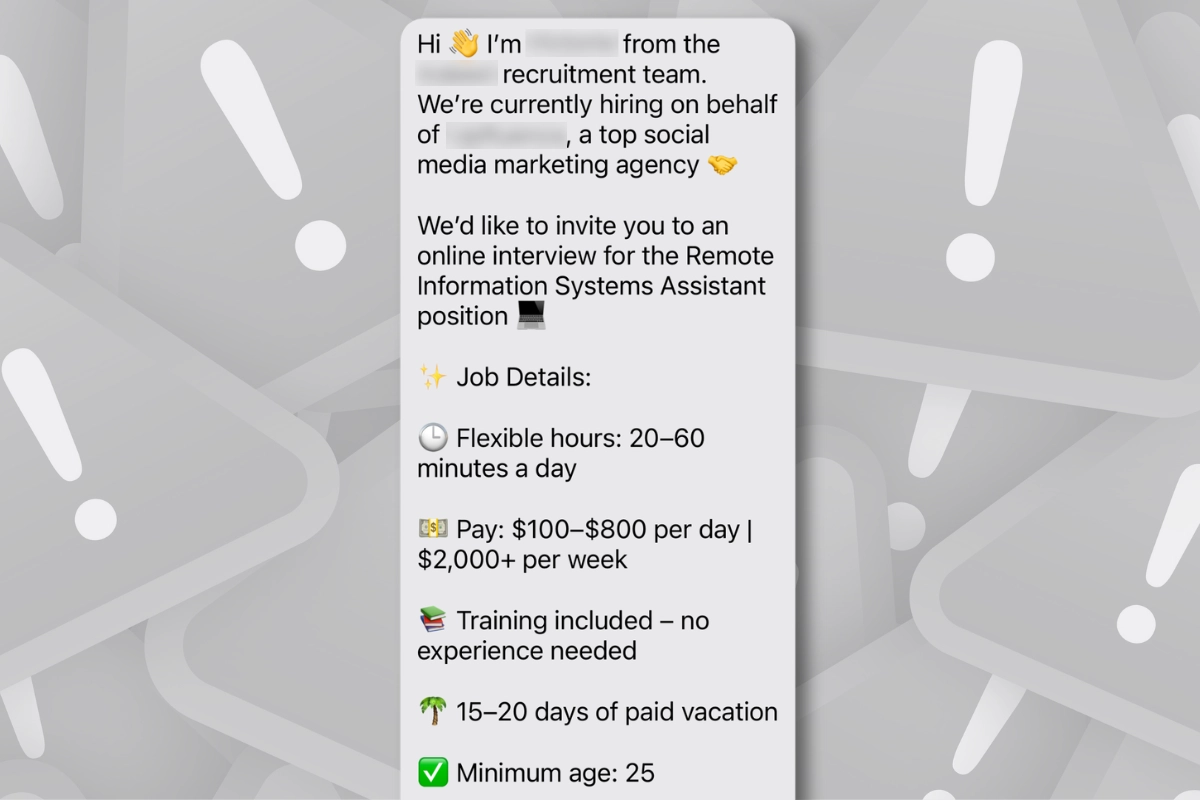
Chances are, you have received a text, email, or call with a message like this one. It’s often obvious when such “opportunities” are too good to be true, but not always. What if you receive a message that appears to be from a legitimate recruiter? Here are 5 tips to help you determine if it is. We recommend using all these methods together, rather than relying on any one of them alone.
1. Ensure the opportunity aligns with your background.
A real recruiter will only reach out to you about opportunities that fit your experience. While career pivots are possible, recruiters typically seek out candidates who have worked in a single field for many years. If you are contacted about an opportunity in an industry you’ve never worked in, chances are the recruiter who contacted you is not legitimate.
2. Reference employment laws in your area.
In Minnesota, where our office is based, employers are legally required to disclose pay and benefits information in “any solicitation intended to recruit job applicants for a specific available position.” If you come across an opportunity that doesn’t disclose this information, it may be a scam. We encourage you to familiarize yourself with employment laws in your state and local area so you know exactly what to look for.
3. Investigate the company the recruiter claims to work for.
Scammers often impersonate large employment companies like Indeed. While it is a popular job search platform, Indeed does not have a team of recruiters who work on behalf of other companies. They make it clear that they never reach out to candidates to make offers through any method of communication. While our recruiters may reach out after you apply to a job on Indeed, we will never claim to work for or be affiliated with Indeed or any company other than our own.
4. Check the recruiter’s LinkedIn profile.
This is especially easy when a recruiter reaches out directly via LinkedIn, which our recruiters often do. We optimize our profiles to make it easy to verify who we are and where we work. Look for a complete profile and connections with other employees at the company or the recruiting firm they claim to be affiliated with.
5. Verify the recruiter’s credentials.
At SRG Stillwater, all our recruiters are listed on our website, and their LinkedIn profiles are linked to their bios. While not every company or firm does this, the practice is becoming increasingly common. When in doubt, call the company or firm via the phone number provided on their website (not a number you may have received in a text, direct message, etc).
A word of caution from our recruiters:
As a candidate, you should never be asked to pay to use a recruiting service. Legitimate recruiters are paid by companies to find candidates, not the other way around.
Candidates should never provide personal information to a recruiter unless they are applying for a role directly with a company or applying for a contract position through a recruiting firm.
It’s important to stay vigilant about these scams as they continue to plague the hiring field. If you’re seeking your next career move in a specialized field, our recruiters can help. We bring over 30 years of combined experience and have made placements on most continents. Don’t just take it from us—see what companies and candidates have to say about working with us. Feel free to contact or call us at 651-383-2020 with any questions.